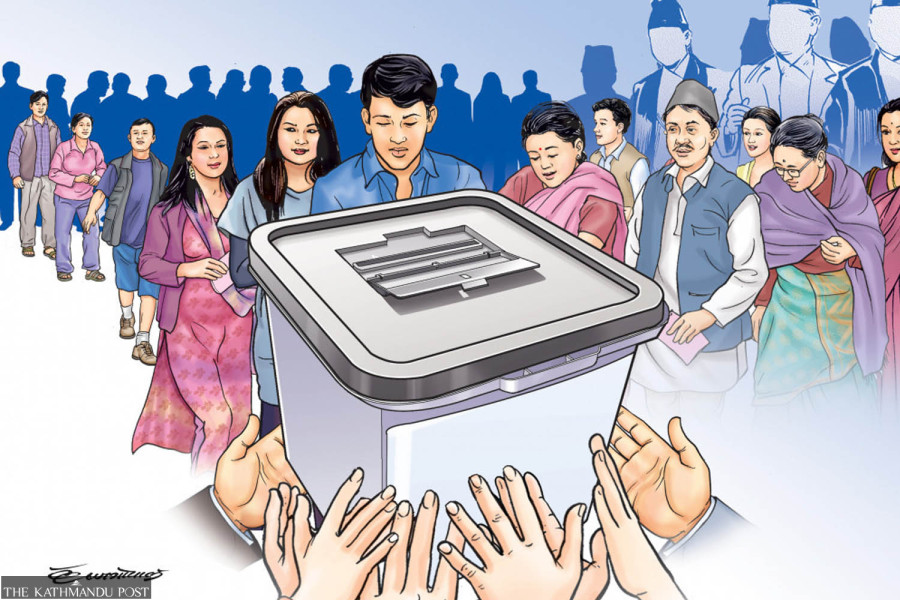Politics
Nepali elections are becoming a battle of same old faces
Lack of internal democracy in political parties is mainly to be blamed.
Nishan Khatiwada
Despite growing voices within Nepali political parties for transferring the leadership to the new generation, most candidates for the November 20 elections are the same old, tried-and-tested faces if Sunday’s nominations for the first-past-the-post category are anything to go by.
The major parties have fielded many leaders who have been repeatedly in power and held positions multiple times. A large chunk of 2017 election candidates have been repeated this time. This is also because the parties had prioritised the winners of the 2017 elections as well as their influential leaders in ticket distribution. However, some dissident and critical voices including those with high probability of winning, have been denied tickets.
The candidates-nomination has indicated that the new federal parliament is unlikely to see many new faces.
Candidates filed their nominations for the 165 House of Representatives seats and 330 seats in seven provincial assemblies as the filing of nominations by candidates of the political parties and independent aspirants for the first-past-the-post seats concluded Sunday.
Before the announcement of the major polls, a group of voters had launched a social media campaign urging the public to reject old faces, especially those who have already become prime minister. The theme of the Facebook page they created was “No, Not Again”.
Also, voices for the ‘right to reject’ or negative voting have also been growing for the past few years.
The Supreme Court, in January 2014, passed a judgement, giving the voters the right to cast negative votes. But the Election Commission has failed to implement the provision for the lack of a law.
The voices in favour of new faces surface due to the lacklustre performance of the existing lawmakers, ministers, and top party leaders, according to observers.
“Such voices emerge time and again because the elected representatives engage in various wrongdoings, are self-centred and never prioritise good governance,” said Bhojraj Pokharel, former chief election commissioner.
Nevertheless, such voices have not translated into votes required to send new faces in parliament and provincial assemblies, Pokharel said. “Somehow, these feelings have not been reflected in votes.”
Nepal also lacks an age limit and a term cap for election candidates.
Though there is a two-term cap for local representatives, other positions like prime minister, chief minister, minister or lawmakers are free of any limitation. This gives a chance for politicians to stay in office as long as they wish to.
There are several politicians who have become lawmakers and ministers multiple times despite their repeated poor performances.
Political analyst Indra Adhikari sees fault in the party system and the recruitment process of the political parties that she says prevent the emergence of new faces. “In the past, trainings, discussions and symposiums would be conducted to train and educate new leaders. But now, such events are rare. Also, the student organisations of the political parties have failed to produce quality leaders,” she told the Post.
Another problem, according to her, is that the public also does not trust new faces on the ballot-paper and opts for well-known old leaders. “As the public votes for the same old politicians, new leaders do not get a chance,” she said.
Observers suggest implementing some measures to encourage new faces in parties and legislative positions.
Political parties should select election candidates not on the basis of who knows who, but through fair competition so that meritorious candidates get the opportunity, Pokharel added. “So we need to select candidates through primaries. Candidates should be filtered from the lower level,” he said. “Primaries should be used to reject mediocre leaders.”
Adhikari, on the other hand, suggests putting a term limit for positions like lawmakers. “Even in the political parties, a term limit should exist for the party head who has the chance to become prime minister. Our intelligentsia has also come to realise this,” she said.




 11.12°C Kathmandu
11.12°C Kathmandu















